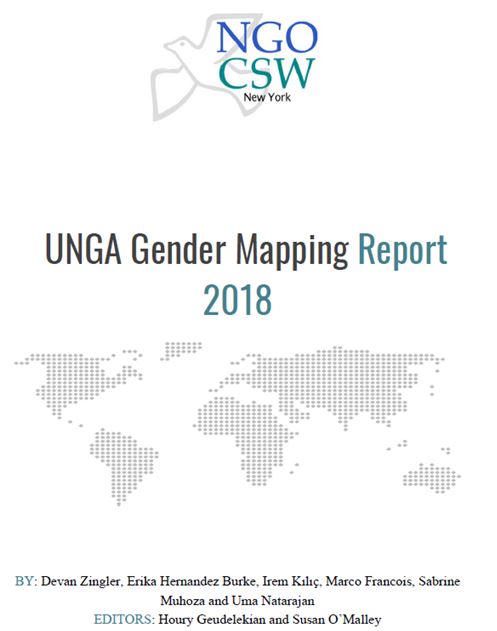France – First Country to Enshrine Abortion in the Constitution
USA State of Alabama Passes Law to Protect IVF Treatments:
Alabama Passes Law to Protect I.V.F. Treatments – The New York Times (nytimes.com)
France votes to enshrine abortion rights in constitution, a reaction to U.S. – The Washington Post
By Karla Adam
March 4, 2024 – PARIS — With the endorsement of a specially convened session of lawmakers at the Palace of Versailles, France on Monday became the first country in the world to explicitly enshrine abortion rights in its constitution — an effort galvanized by the rollback of protections in the United States.
It passed by a vote of 780 in favor and 72 against, far above the required threshold of support from three-fifths of lawmakers, or 512 votes.
French President Emmanuel Macron announced that a “sealing ceremony,” a tradition reserved for the most significant laws, would take place Friday, coinciding with International Women’s Day.
“We’re sending a message to all women: Your body belongs to you, and no one can decide for you,” Prime Minister Gabriel Attal told lawmakers assembled in Versailles.
Thousands of Parisians gathered to watch the proceedings live on a giant television screen at Le Parvis des Droits de l’Homme — or Human Rights Square — in central Paris, with the Eiffel Tower looming dramatically over the scene.
When the amendment passed, the crowd erupted in celebration, and the tower lit up with twinkling lights. Mothers and daughters embraced. People cheered and waved French flags. The square immediately transformed into a massive street party, with revelers singing the lyrics from a Beyoncé song, “who run the world, girls.”
Laurence Beldowski, 53, turned to her daughter, Eugenie, 22, and hugged her tightly. A topless woman danced through the crowd with the words, “Blessings, abortion is finally in the constitution,” painted across her bare torso.
“It’s incredible,” Beldowski said. “It’s a long fight for all generations, my mother, my grandmother, my daughter; it’s for every woman. It’s incredible to be the first country to protect this fundamental right of all women.”
France decriminalized abortion in 1975. Abortion is legal here for any reason through the 14th week of pregnancy; that’s more restrictive than in nearly half of U.S. states, where abortion is protected well past 14 weeks. This amendment won’t in itself loosen any laws.
But while other countries have inferred abortion rights protections from their constitutions, as the U.S. Supreme Court did in Roe v. Wade, or implied it, as Slovenia does with a line about the freedom to choose to have children, France is the first to explicitly codify in its constitution that the voluntary termination of pregnancy is protected.
“March 4, 2024, is now engraved in the great history of human rights and women’s rights as a historic turning point‚” said Sen. Mélanie Vogel, one of the main backers of the bill.
The outcome was “also a promise for all women who fight all over the world for the right to have autonomy over their bodies — in Argentina, in the United States, in Andorra, in Italy, in Hungary, in Poland,” said lawmaker Mathilde Panot, who had introduced the bill in the National Assembly. “This vote today tells them: Your struggle is ours; this victory is yours.”
A reaction to the United States
Activists and politicians have been transparent that this is, above all, a response to what has been happening in the United States since the Supreme Court overturned Roe in 2022 and determined that the right to abortion has no constitutional stature — that it could no longer be inferred from constitutional privacy protections.
France has moved in the opposite direction, with its politicians saying that abortion is indeed a matter of constitutional relevance. And more than that: The right to an abortion should be a “guaranteed freedom.”
“It’s interesting to see French politicians saying, ‘We’re going to take the constitution into our own hands and away from the courts, or at least limit how much discretion the courts are going to have in this area,’” said Mary Ruth Ziegler, a law professor at the University of California at Davis and the author of “Roe: The History of a National Obsession.”
The overturning of Roe was a “major shock around the world,” said Floriane Volt, a spokeswoman for the Fondation des Femmes (Women’s Foundation), a women’s rights organization that organized Monday’s gathering.
“In France, it helped us so that French politicians understood what we were saying to them for years and years. … We have to fight for abortion rights,” she said.
In many countries, abortion is protected by law, not court decision
She added that she hoped the success of the French campaign would strengthen other abortion rights movements.
“U.S. activists, don’t give up the fight,” said Lola Schulmann, an advocacy officer with Amnesty International in Paris who was at Monday’s gathering. “What is happening in France is for you and all women fighting for abortion rights in the world.”
What would it take to change the U.S. Constitution, too?
In both the United States and France, polls show that a majority of people broadly support abortion rights. But abortion is more divisive in the United States than in France. The largest of the antiabortion protests Monday appeared to be a “March for Life” demonstration near Versailles involving several hundred people.
That may be in part because France is proud of its commitment to secularism. It may also be because abortion in France has long been framed as a public health issue, rather than a privacy issue, said Stéphanie Hennette-Vauchez, a professor of public law at the University of Paris-Nanterre.
Changing the U.S. Constitution would be harder — it requires not only two-thirds majority support in both houses of Congress, but also ratification by at least 38 of 50 state legislatures.
“The obstacles are more significant,” Ziegler said.
She noted that one of the most “notorious examples” of how hard it is to change the U.S. Constitution was the failure to ratify the Equal Rights Amendment, which declared that sex discrimination was unconstitutional in the United States. “I think most people would think that’s less controversial than an abortion amendment would be,” Ziegler said.
Since the U.S. Constitution was ratified in the 1780s, it has been amended only 27 times, including the Bill of Rights, the first 10 amendments. “That sort of perspective gives you a sense of just how difficult it is” to change it, said Melissa Murray, a law professor at New York University. “It’s even more difficult today to come up with a supermajority given the political divisions.” By contrast, the current constitution of France, adopted in 1958, has been amended 24 times.
State constitutions in the United States can be amended more easily than the U.S. Constitution. And so, “for people supporting women’s rights, the strategy has been to go incrementally through the states, and hope to build eventually towards something nationally,” Ziegler said.
Since the end of Roe, six states — California, Kansas, Kentucky, Michigan, Vermont and Ohio — have approved abortion-related constitutional amendments. At least 13 additional states are trying to get abortion amendments on their ballots this year.
The future of abortion rights in France
In France, nothing will change immediately as a result of the new constitutional amendment.
The amendment does not change the status quo or the content of legislation as it stands today. For instance, it is not suddenly legal for any reason to terminate a pregnancy after the 15th week of pregnancy. The French National Assembly and the Senate would need to pass legislation if they wanted to make that kind of change.
“It’s up to Parliament to regulate in this field,” Hennette-Vauchez said. But, going forward, “Parliament cannot do exactly what they want. They need to legislate in a particular direction. And that direction is one that would preserve the idea of a guaranteed freedom.”
It would now be more difficult for a new government to ban abortion at anything less than 15 weeks, or even to decide that abortion was no longer fully covered by the country’s health insurance system.
But Hennette-Vauchez noted that judicial interpretation is hard to predict. “In that sense, the word ‘guarantee’ is very important, but it’s also relatively undefined.”
France’s constitutional amendment doesn’t safeguard abortion rights in France for eternity. Recognizing a right doesn’t eliminate all of the questions about that right. There will still be judicial interpretation over what a “guaranteed freedom” means.
And as lawmakers this year have shown, constitutions can be changed.
Far-right leader Marine Le Pen dismissed the historic nature of Monday’s vote, saying that it did not respond to any particular difficulties in France and was merely “a day that [President] Emmanuel Macron organized for his own glory.”
Извор: WUNRN – 08.03.2024



